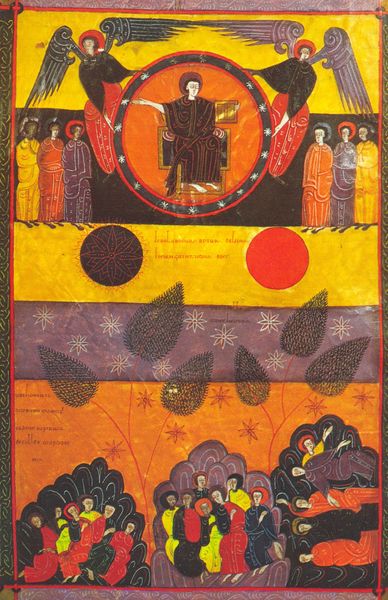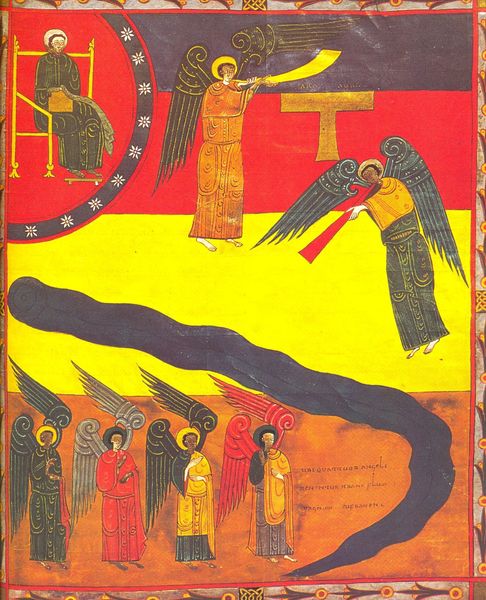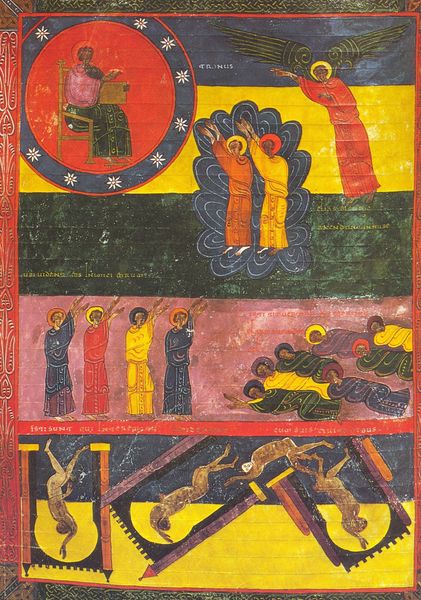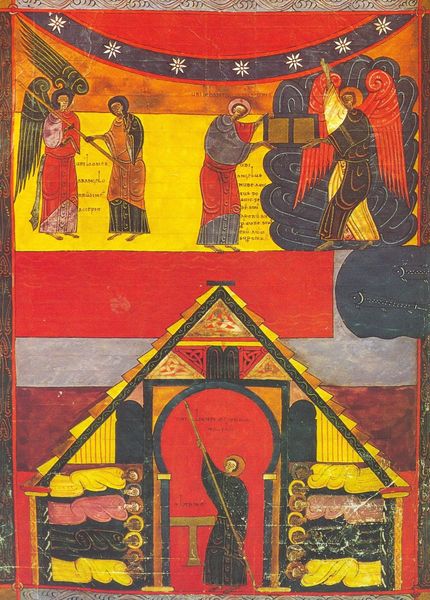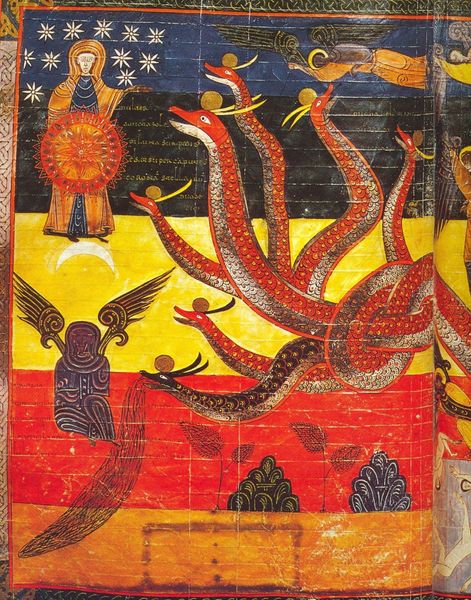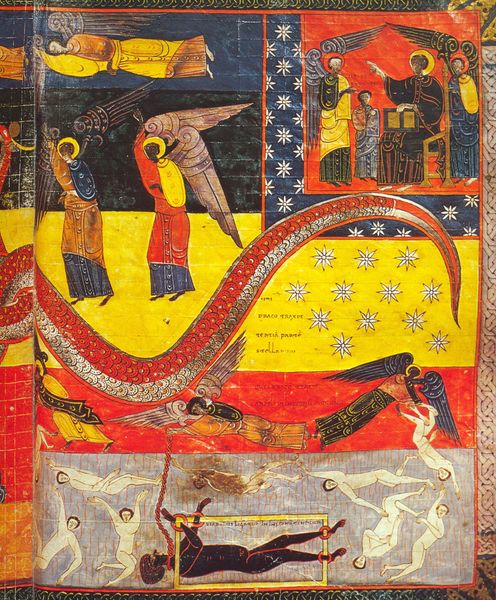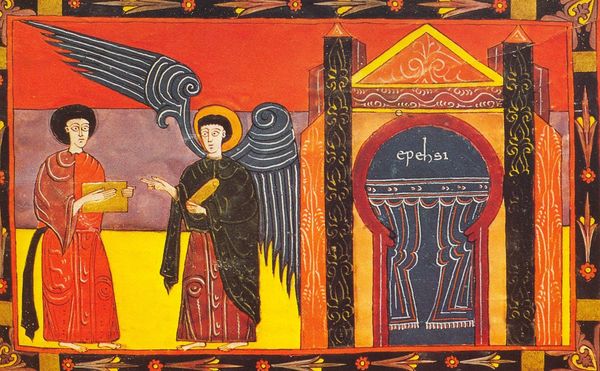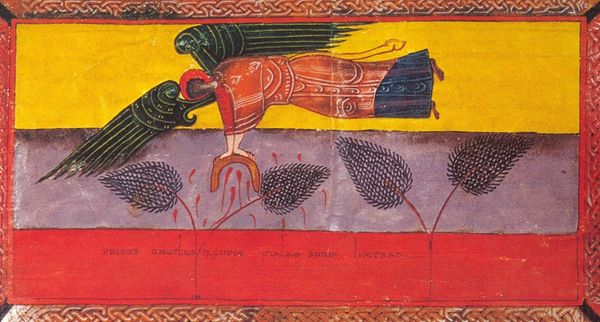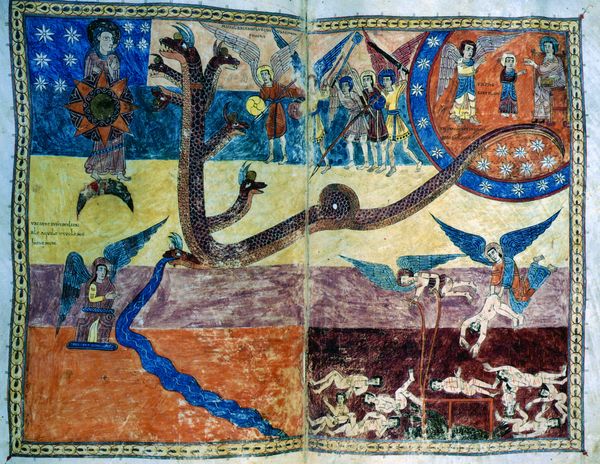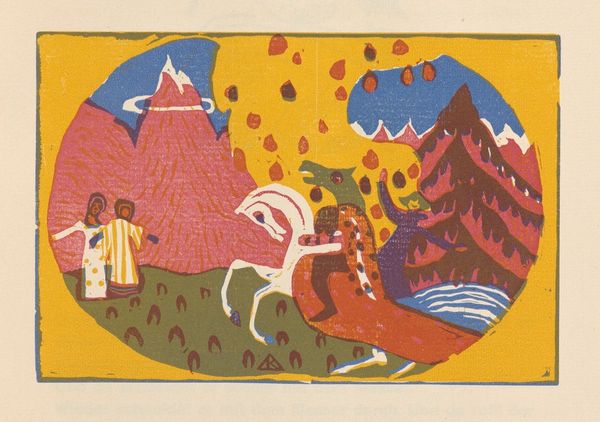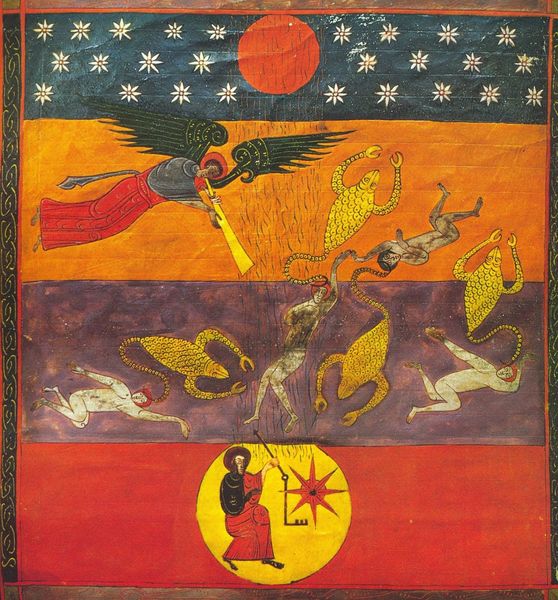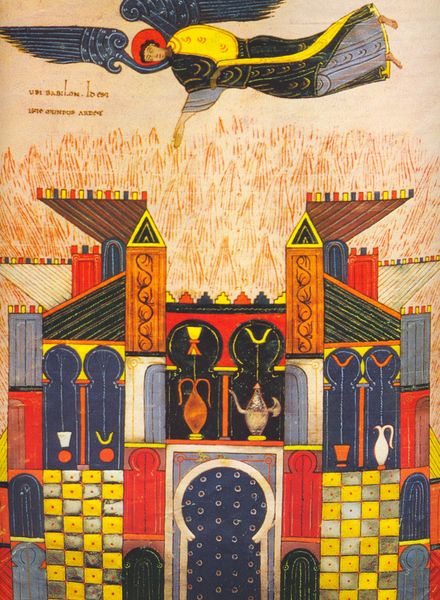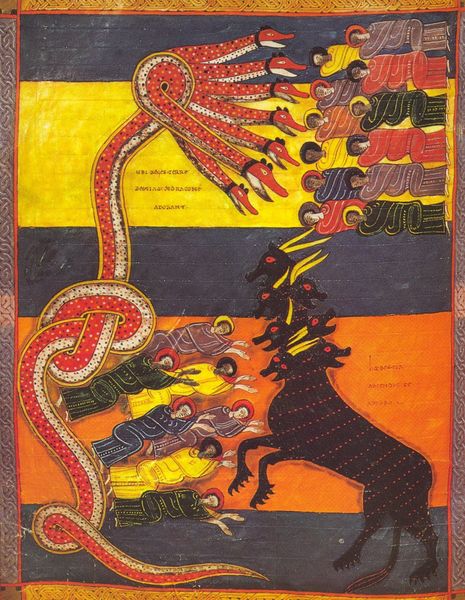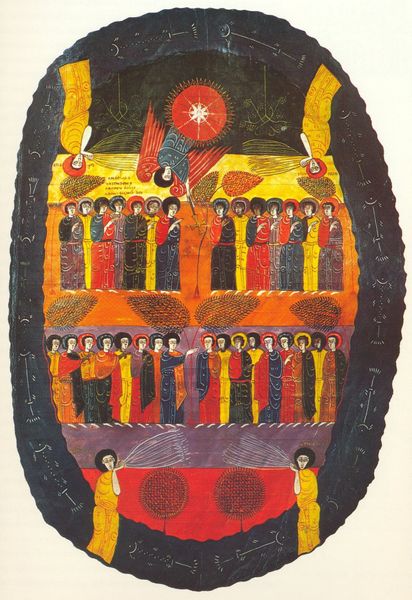
tempera, painting
#
byzantine-art
#
medieval
#
narrative-art
#
tempera
#
painting
#
figuration
#
miniature
Copyright: Public domain
This is "La Jérusalem nouvelle. Le Fleuve de Vie. L'Arbre de Vie. Apoc. XXII," made around 1050 by Facundus. It’s made with tempera and ink on parchment – time-honored materials for illuminated manuscripts. Consider the making of it, from the animal skin carefully prepared as a writing surface to the grinding of pigments that give it such vibrant color. Note the artist's skill in rendering such detail, the intricate interlace pattern at the top, and the stylized figures throughout, demonstrating a mastery of line and form. Each stage, from the preparation of materials to the application of paint, was a labor of love, reflecting a devotional practice as much as artistic expression. The very act of creating this work would have been seen as a spiritual discipline. Through the skilled hand of the artist, humble materials were transformed into an object of beauty and reverence. The techniques that Facundus engaged with are linked to histories of spiritual creative practices, alongside that of craft and fine arts. The image’s full meaning lies not just in its iconography, but also in the materials, making, and social context.
Comments
No comments
Be the first to comment and join the conversation on the ultimate creative platform.
